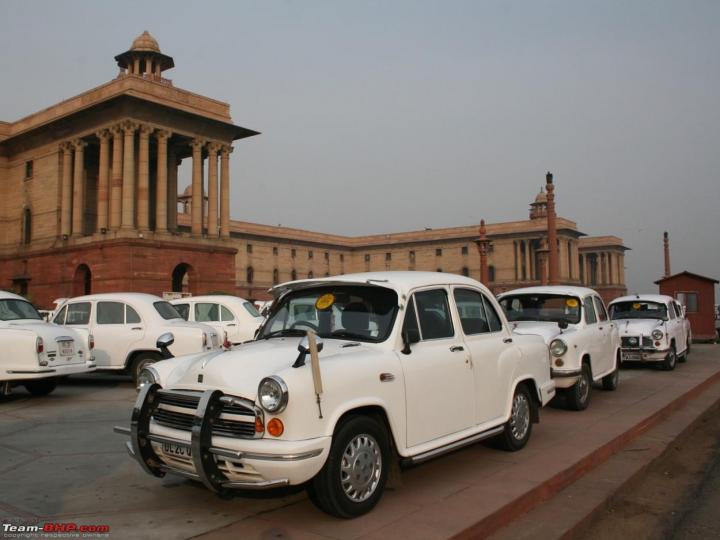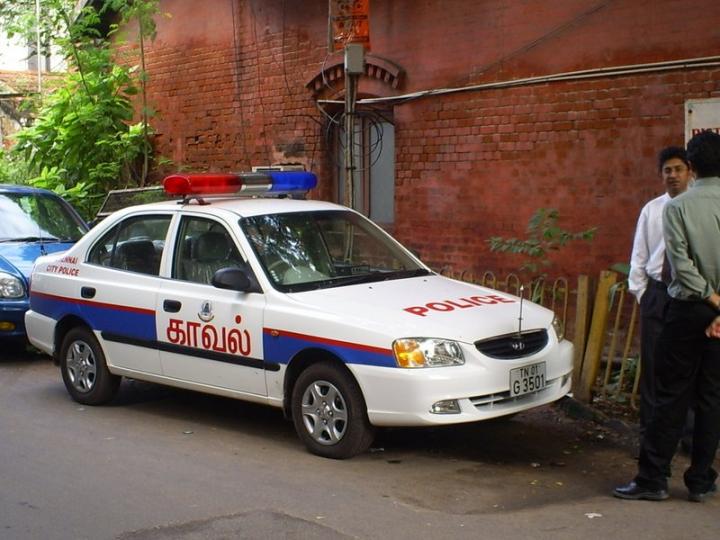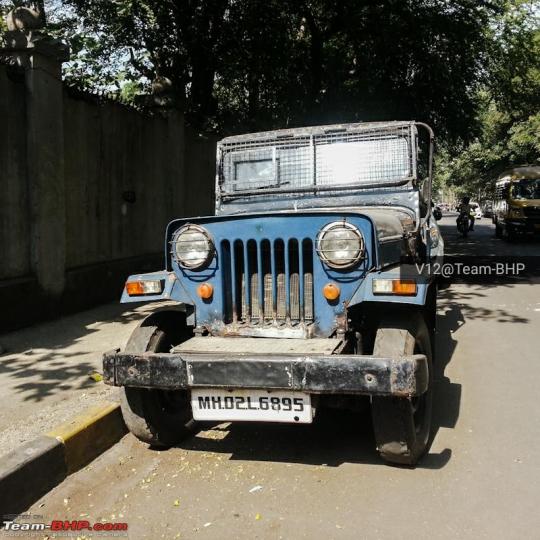News
Thoughts on de-registering govt. vehicles older than 15 years
The moot point under discussion here is as to whether such a policy is sensible, logical, judicious and equitable or is it a drain on the exchequer for the vehicle owning authorities, who will compulsorily have to comply with such directives. And for such a drain on the exchequer, we the public will have to fund the newer purchases with increased taxes.
BHPian anjan_c2007 recently shared this with other enthusiasts.
Along with the Vehicle Scrappage Policy released on 15th March 2021, the Transport Ministry has proposed to de-register all government vehicles that have completed a period of 15 years after their first registration. It covers all government vehicles of all categories owned by the central, state governments, state and central public sector undertakings (including governments of Union Territories), municipalities, gram panchayats and autonomous bodies and is effective come 01.04.2022.
The moot point under discussion here is as to whether such a policy is sensible, logical, judicious and equitable or is it a drain on the exchequer for the vehicle owning authorities, who will compulsorily have to comply with such directives. And for such a drain on the exchequer, we the public will have to fund the newer purchases with increased taxes.
The image in popular public perception is that:
- Government vehicles are usually highly polluting and escape from the transport authorities' law enforcement.
- And the next perception is that once old, these are very heavy on maintenance and a drain on the exchequer.
- A majority of these are misused by officials for duties other than in public interest.
- These are status symbols for the respective officials who like to flaunt their mechanical symbol of power and authority at public expense.
While most of the above points could be applicable in many lakhs of cases, there are always exceptions to the rule. As a scientist and later bureaucrat for more than three and a half decades, I have come across very well-maintained government vehicles, especially at the very senior levels of the hierarchy. Because here, for the senior officials, the choice of the best drivers available, the best possible care in departmental workshops and meticulous maintenance due to their nature of duties, make many of such vehicles at senior levels last upto two decades or more, subject to almost no misuse. Usually, if a new replacement for any older written-off vehicle in the office is obtained, the senior officers get the new vehicle allocated to themselves. But in some cases, the seniors also prefer to keep the existing, old vehicle for their official use and that continues.
Besides, there are many government vehicles that do not even complete the six figure mileage (100,000 kms) mark until they attain the age of 15 years. The present norms of the Central government require that a vehicle get rendered unservicable after a run of 250,000 kms (no maximum age prescribed) by a Write-Off Committee (usually has mechanical engineers and others in the Committee) that inspects such vehicles, writes them off and these are surrendered for auction through the Metal and Scraps Trading Corporation (MSTC).
There are protocol department vehicles that are used for VIP visits in various cities of a state, which are very less used. An ex-Chief Protocol Officer of a state government the other day revealed how he had saved very well maintained exclusive vehicles of the Protocol Department, whose files were moved for getting written-off and scrapping. He revealed that in one such vehicle, the Late ex-PM Jawaharlal Nehru had also travelled while on a visit.
The very nebulous category of the usually old or even new, mechanically unsafe, uncared for and government vehicles that we usually see on public roads like jeeps, trucks and even cars sometimes, that are ill-maintained and pollute are usually those that are usually changed over to various divisions/sections within the same office and are used by different drivers and different ranks of junior officials. The office provides lower budgets for the care of such vehicles usually and these are kept running, come what may in public interest.
Encouragingly, many such government bodies (the Central government departments lead here) have started engaging private taxies for government duties, after inviting tenders from qualified service providers and following the due official processes.
Here's the official press information bureau (PIB) press release and a news article on the same by The Hindu.
Here's what BHPian vigsom had to say on the matter:
Like private and commercial vehicles, government vehicles' condition also follows a normal distribution. There are the bad, the good and the great. It is incorrect to axe all vehicles that are over 15 years. Instead, inspect and keep those that are in good shape and whose engines' emissions are in spec. Anyways vehicles today are nowhere as robust as those of the past. Therefore it makes sense to take care of old gems. Take the simple case of the US. Do they scrap vehicles over 15 years old? Don't they care for their environment?
An option can be built in to allow government vehicles to ply post 15 years if retrofitted with EV kits.
I was in Delhi in Nov 2019 for a function, and was staying at a place off UER-II, with the IGI Airport boundary right across the road. The AQI was so bad that I couldn't see airplanes coming in to land; could just see some lights through the haze. Did scrapping 10-year-old diesels help the AQI? It is unfortunate that those Babus who frame policies are the ones who barely get impacted by such impractical decisions.
Here's what BHPian V.Narayan had to say on the matter:
Bashing up the government and our babus is a normal response amongst us, the public and who knows the govt and the babudom give us good reason for our angst.
A counter point of view not likely to find favour on this forum.
With reference to this particular situation only, my take is that if the general rule is of scrapping/blocking use of vehicles after 20 years (and in Delhi after 15 years), then the Govt following its own policy in spirit and letter is a good thing. Let's bear in mind that Govt vehicles come in all sorts - staff cars, state road corporation buses, Jeeps used in the rural areas, police vehicles, to dispatch rider motorcycles etc. Govt vehicles are not just staff cars.
And most of them, not all, would have a usage equal and often greater than the average private vehicle. My own experience, from 35 to 40 years ago, when my Dad had a staff car, was a usage of about 16,000 kms a year. That translates to the 2.5 lakh kms range in 15 years. Sounds reasonable to me. I'd rather they buy new vehicles every 15 years than spend my tax rupee on repairs of old vehicles.
I retain my right to bludgeon the blighters on other matters.
Check out BHPian comments for more insights and information.























